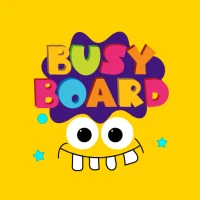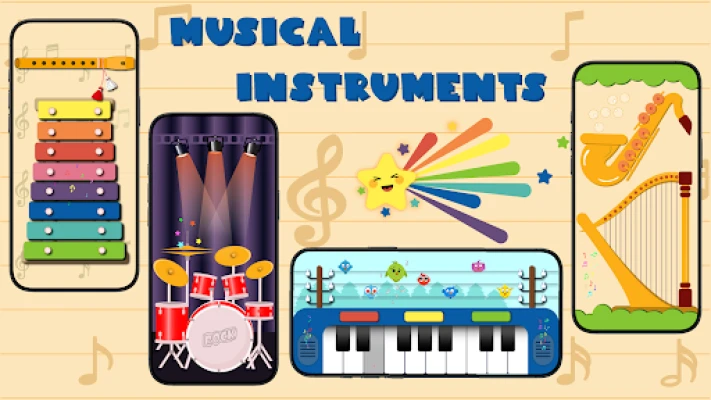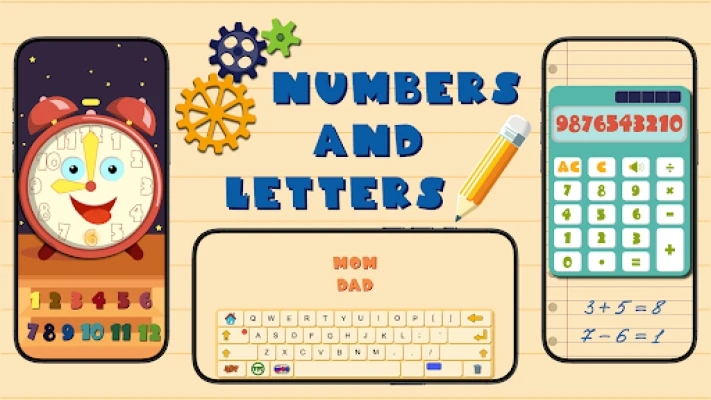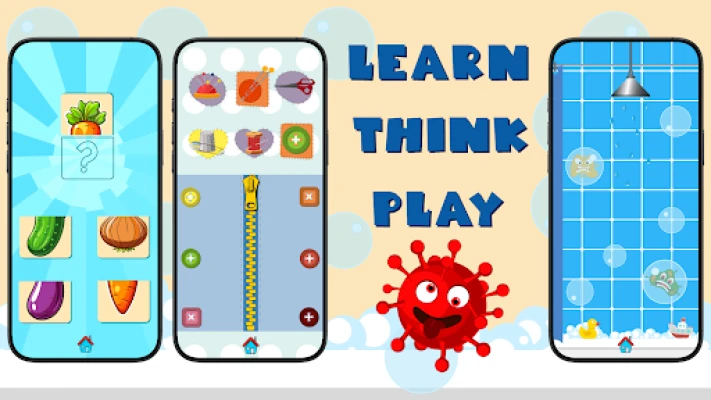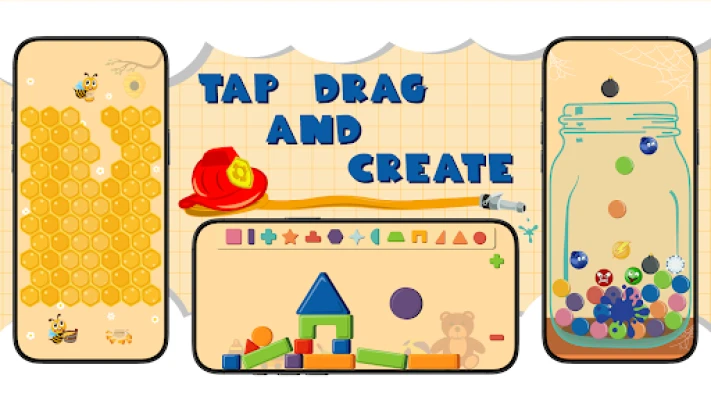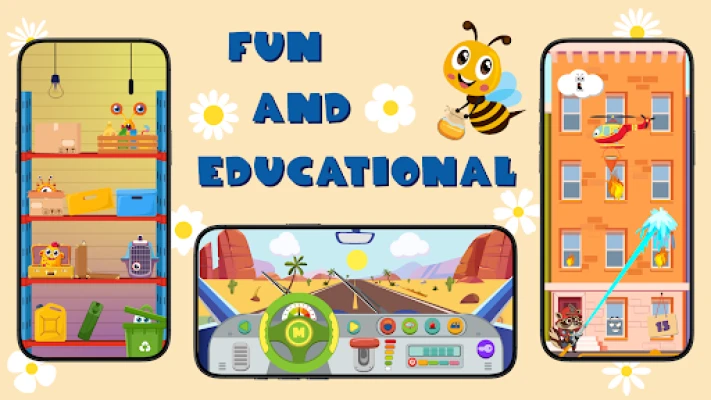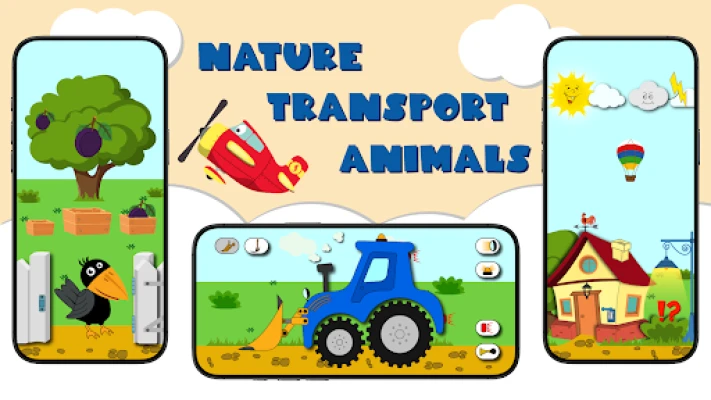
Latest Version
1.1.65
June 15, 2025
mini bit studio
Games
Android
0
Free
com.minibitstudio.game
Report a Problem
More About Busyboard - games for kids
Engaging Educational Games for Kids Aged 1 to 4: Unlocking Learning Through Play
In the early years of childhood, play is not just a source of entertainment; it is a vital component of learning. Educational games designed for children aged 1 to 4 years old provide a fun and interactive way to develop essential skills. These games cater to both boys and girls, ensuring that every child can benefit from the enriching experiences they offer. Below, we explore various educational games that enhance skills such as visual perception, concentration, logical thinking, and fine motor skills.
Creative Drawing Activities
One of the most enjoyable ways for toddlers to express themselves is through drawing. Using a slate board and vibrant, multi-colored crayons, children can learn to draw while enhancing their creativity. This activity not only fosters artistic skills but also improves hand-eye coordination and fine motor skills.
Discovering Animal Sounds
Learning about the animal kingdom can be both fun and educational. Through interactive games, children can explore the sounds of various animals. This auditory experience helps improve listening skills and encourages curiosity about nature.
Introduction to Arithmetic with a Kids Calculator
Mathematics can be introduced at an early age with a simple kids calculator. Through engaging activities, children can learn basic arithmetic concepts, laying the foundation for future math skills. This playful approach makes learning numbers enjoyable and accessible.
Enhancing Hand Motility with Zipper Games
Games that involve zippers are excellent for training hand motility. As children practice zipping and unzipping, they develop dexterity and coordination, essential skills for everyday tasks.
Interactive Sounds: Spinner, Klaxon, and Bell
With over 300 different sounds and interactive elements, children can explore a world of auditory stimulation. From spinners to klaxons and bells, these sounds captivate young minds and encourage exploration and interaction.
Exploring Musical Instruments
Introduce your child to the world of music with a variety of high-quality musical instruments, including pianos, xylophones, drums, harps, saxophones, and flutes. These instruments not only reveal your child's musical potential but also enhance auditory skills and rhythm recognition.
Understanding Day and Night
Games that simulate the change of day and night provide children with basic knowledge about time and the natural world. This understanding fosters a sense of routine and helps children grasp the concept of time passing.
Weather Exploration Games
Through interactive weather games, children can learn about different weather conditions. This knowledge is essential for understanding the environment and encourages curiosity about the world around them.
Transport Sounds and Animations
Children are often fascinated by vehicles. Educational games featuring sounds and animations of air and ground transport can enhance their understanding of different modes of transportation while stimulating their imagination.
Counting Made Fun
Learning to count is a fundamental skill for young children. Engaging games that focus on numbers 1, 2, and 3 make counting enjoyable and help reinforce numerical concepts in a playful manner.
Interactive Elements: Light Bulbs and Switches
Children love to explore and interact with their environment. Games that include light bulbs, toggle switches, buttons, and fans allow kids to play with various elements, enhancing their understanding of cause and effect.
Learning Time with Clocks and Alarms
Teaching children about time can be made simple and fun with interactive clocks and alarm clocks. These tools help children learn to recognize numbers and understand the concept of time management.
Exploring Physics with Cubes
Games that involve cubes and simple geometric figures introduce children to the basics of physics. By interacting with these shapes, kids can learn about spatial relationships and the properties of different objects.
Fun with Cartoon Sounds
Cartoon sounds add an element of fun and familiarity to educational games. These amusing sounds can engage children and make learning more enjoyable, encouraging them to explore further.
Benefits of Our Educational Games
- Intuitive and Colorful Interface: The vibrant design captures children's attention and makes navigation easy.
- Interactive Elements: Kids can click on everything drawn, promoting exploration and engagement.
- Completely Free: Enjoy all features without any additional purchases.
- User-Friendly: The games are designed for easy use, even for the youngest players.
- Optimized for Mobile Devices: Perfectly suited for both phones and tablets, allowing for learning on the go.
- Multilingual Support: Translated into major European languages, making it accessible to a wider audience.
In conclusion, these educational games provide a rich and engaging learning experience for toddlers. By combining fun with education, children can develop essential skills while enjoying their playtime. With a variety of activities that cater to different interests, every child can find something they love, making learning an exciting adventure.
Rate the App
User Reviews
Popular Apps










Editor's Choice










